Finding the word
Information in the dictionary is given in entries, arranged in alphabetical order of headwords. Compound words are in separate entries, also arranged alphabetically.
Some headwords may have more than one part of speech.
Parts of speech are displayed below the entry. Where the headword has multiple parts of speech, each one is displayed as a link which jumps to the required part of speech when clicked.

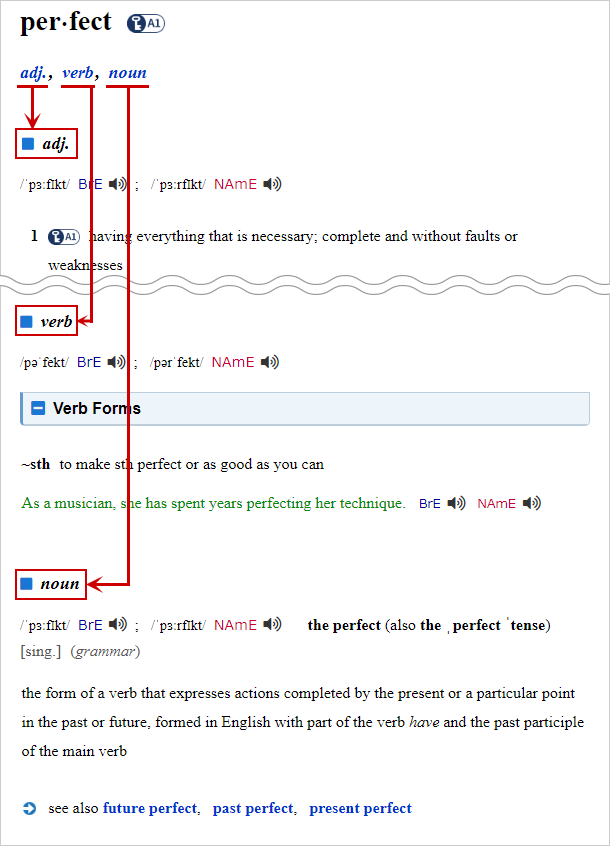
Squares show where the information each part of speech begins.
There are some words in English that have the same spelling as each other but different pronunciations.

The small homonym number shows that this is the first of two headwords spelled gill.

Different pronunciation is given at each headword.
There are also some words in English that have more than one possible spelling, and both spellings are acceptable. Information about these words is given at the most frequent spelling.
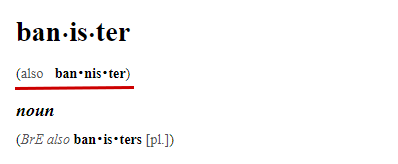
The variant spelling is given in brackets.
At the entry for the less frequent spelling a cross reference directs you to the main entry.
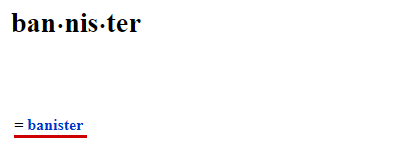
Irregular forms of verbs are treated in the same way.
Some words that are derivatives of other words do not have their own entry in the dictionary because they can be easily understood from the meaning of the word from which they are derived (the root word). They are given in the same entry as the root word, in a specially marked section.
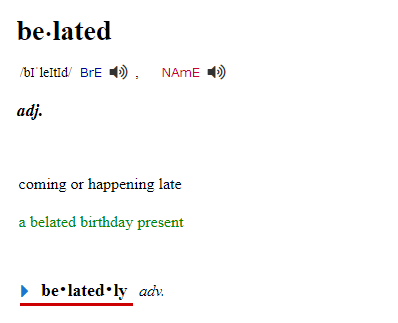
The blue triangle shows where the derivative section starts.
You can find idioms and phrasal verbs in separate sections, each enclosed in a separate frame.
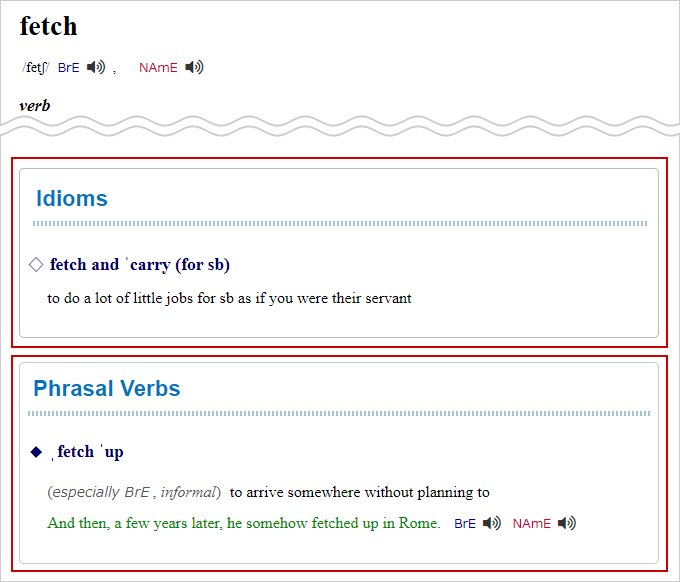
Wordfinder notes help you to find words that you don’t know or have forgotten. They suggest entries that you can look up to find vocabulary related to the headword. For example, you will find this Wordfinder note at the entry for home.
